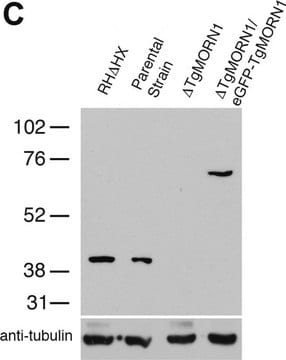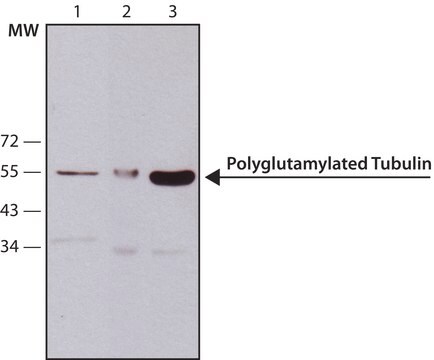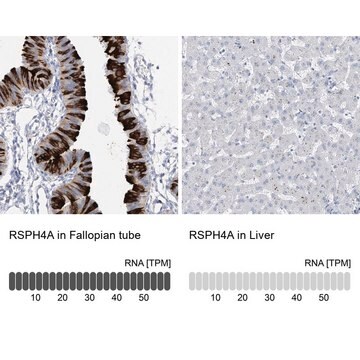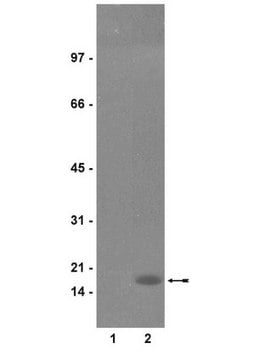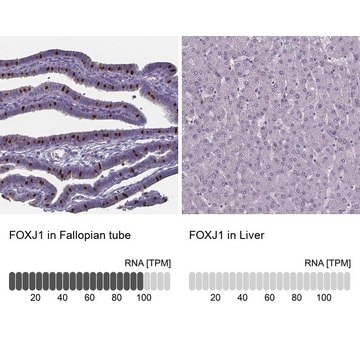T6793
Monoclonal Anti-Tubulin, Acetylated antibody produced in mouse
clone 6-11B-1, ascites fluid
Synonym(s):
Anti-ALS22, Anti-H2-ALPHA, Anti-TUBA1
About This Item
Recommended Products
biological source
mouse
conjugate
unconjugated
antibody form
ascites fluid
antibody product type
primary antibodies
clone
6-11B-1, monoclonal
contains
15 mM sodium azide
species reactivity
mouse, protista, invertebrates, hamster, plant, frog, rat, monkey, pig, bovine, chicken, human
technique(s)
dot blot: suitable
electron microscopy: suitable
immunocytochemistry: suitable
indirect ELISA: suitable
radioimmunoassay: suitable
western blot: 1:2,000 using a bovine or rat brain preparation
isotype
IgG2b
UniProt accession no.
application(s)
research pathology
shipped in
dry ice
storage temp.
−20°C
target post-translational modification
unmodified
Gene Information
human ... TUBA4A(7277)
mouse ... Tuba1a(22142)
rat ... Tuba1a(64158)
General description
Specificity
Immunogen
Application
- immunofluorescence.
- western blotting.
- immunocytochemistry.
- immunohistochemistry.
Biochem/physiol Actions
Disclaimer
Not finding the right product?
Try our Product Selector Tool.
recommended
Storage Class Code
10 - Combustible liquids
WGK
WGK 3
Flash Point(F)
Not applicable
Flash Point(C)
Not applicable
Certificates of Analysis (COA)
Search for Certificates of Analysis (COA) by entering the products Lot/Batch Number. Lot and Batch Numbers can be found on a product’s label following the words ‘Lot’ or ‘Batch’.
Already Own This Product?
Find documentation for the products that you have recently purchased in the Document Library.
Customers Also Viewed
Articles
Microtubules of the eukaryotic cytoskeleton are composed of a heterodimer of α- and β-tubulin. In addition to α-and β-tubulin, several other tubulins have been identified, bringing the number of distinct tubulin classes to seven.
Our team of scientists has experience in all areas of research including Life Science, Material Science, Chemical Synthesis, Chromatography, Analytical and many others.
Contact Technical Service



